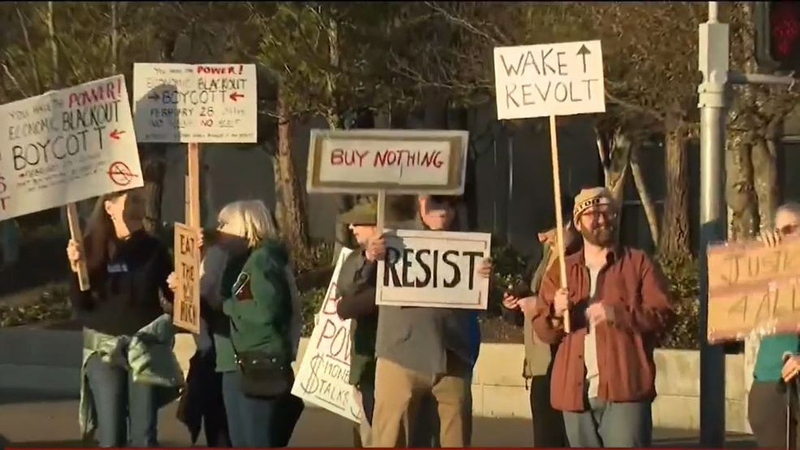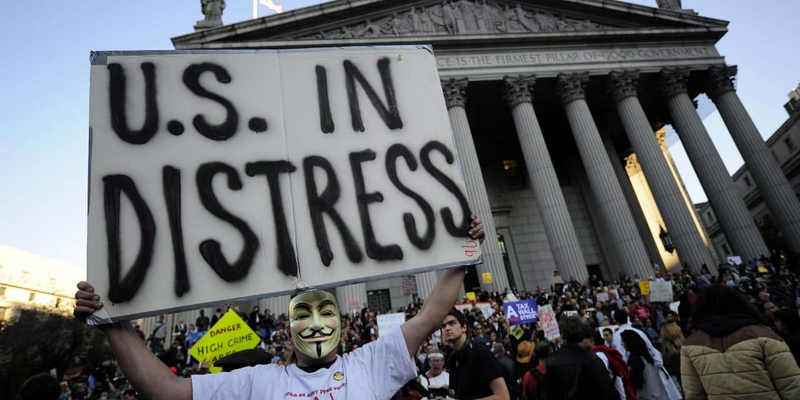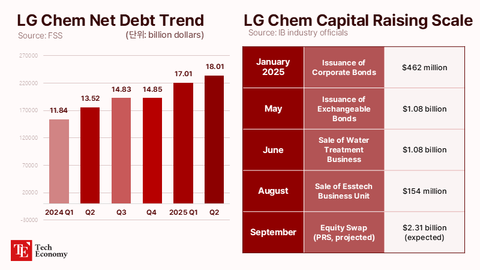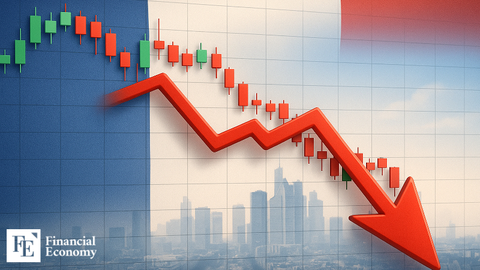The “Economic Blackout” Movement: A Closer Look at the Protest Against Consumerism and Capitalism
Input
Modified
What Is the February 28 “Economic Blackout”? Consumerism and Capitalism: The Broader Message The Global Impact of a Localized Protest

What Is the February 28 “Economic Blackout”?
In a world that is increasingly shaped by consumerism and constant commercial activity, the idea of an “economic blackout” is bound to stir curiosity. As February 28, 2025, approaches, a growing movement has garnered attention as individuals and groups across the United States plan to halt their consumer spending for the day. It may sound like an outlandish idea, a mere blip in the rhythm of modern economic life, but its significance lies in the collective impact and the broader message it seeks to send.
On the surface, the concept of a “blackout” seems to be an anti-consumer protest, akin to the boycotts and strikes that have taken place throughout history. However, there are more complex layers to this movement, with some commentators linking it to broader political and social concerns that extend far beyond mere protest. It is important to explore the various angles that come with the so-called economic blackout—what it is, why it is happening, and its deeper implications for society.
The term “economic blackout” refers to a planned day of refraining from spending money in major commercial spaces and services. As the movement spreads across social media platforms and grassroots networks, participants are encouraged to avoid typical consumer behaviors on February 28, 2025, including making purchases from companies like Amazon, Walmart, and McDonald's, as well as avoiding large-scale retail stores in general. The goal is to create an impact on the economy by reducing spending, albeit for a single day.
This initiative, while simple in its premise, carries with it a more profound message about consumer culture. By refraining from spending money, those participating in the blackout hope to bring attention to the overwhelming influence of corporate giants on everyday life. They argue that capitalism, driven by consumerism, has led to an unchecked consolidation of power among corporations, resulting in a harmful influence over society, politics, and the environment.
One aspect of the blackout involves a commitment to reducing dependence on what many see as the predatory practices of large corporations that contribute to societal issues such as income inequality, labor exploitation, and environmental degradation. Supporters view the blackout as a form of economic activism—an attempt to halt the very system that they believe is responsible for these issues.
While the movement itself purports to be against capitalism and consumerism, some political observers have noted the undercurrents of anti-Trump sentiment that seem to permeate the campaign. According to some reports, this particular blackout is tied to a larger movement that seeks to challenge not only capitalism but also the legacy of former President Donald Trump. A closer examination reveals that many who support the economic blackout are also critical of the political and economic policies that were implemented during the Trump administration.
In this context, the blackout can be seen as more than just a protest against consumerism; it is a rallying cry for a broader political shift. For many, the economic blackout is a symbolic act aimed at confronting the legacy of the previous president’s policies that they view as harmful to the working class and the environment. In some circles, the blackout has become a method of pushing back against the inequalities and divisions that have intensified under Trump’s presidency.
The idea behind the anti-Trump sentiment is to show a collective refusal to engage with a system that they believe benefits a select few at the expense of the many. The supporters of the blackout argue that many of the economic policies under Trump promoted corporate interests over the welfare of the working class, exacerbated wealth inequality, and ignored the demands for climate action.

Consumerism and Capitalism: The Broader Message
At the heart of the February 28 blackout movement is a deeper concern with capitalism itself. For many, this protest isn’t just about stopping consumer spending for a day—it is about highlighting the flaws within a system that prioritizes profit over people. Capitalism, as practiced in today’s society, is often criticized for driving a relentless cycle of overproduction and overconsumption, leading to unsustainable resource use, environmental harm, and rising levels of consumer debt.
As part of the blackout, activists are advocating for a more sustainable, mindful approach to consumption—one that shifts away from blind materialism toward a system that values people, communities, and the planet over corporate profits. The event aims to demonstrate that while capitalism thrives on constant consumption, it is ultimately a system that exploits both people and resources for financial gain.
Critics of capitalism argue that its unchecked expansion has resulted in the concentration of wealth in the hands of a few, increasing inequality across society. This growing gap between the wealthy elite and the rest of the population has led to calls for systemic change. The economic blackout, then, is a collective call to action—one that encourages consumers to take a stand against the pervasive culture of corporate dominance.
For some, the blackout is a way to send a signal that the system of mass consumerism needs to be reconsidered and reshaped into something more equitable and environmentally conscious. By reducing personal consumption for just one day, supporters of the blackout hope to spark broader conversations about the role of consumerism in shaping society and its impacts on the environment.
The blackout movement, although focused on consumer behavior, is far from being solely a grassroots, on-the-ground initiative. Much of the momentum behind the movement has come from social media and online platforms, where people are being encouraged to participate in the protest. Using hashtags and other forms of digital engagement, those advocating for the blackout hope to generate attention and mobilize participants on a larger scale.
Online platforms have become the primary space for organizing and spreading the message of the blackout. Participants are being urged to engage in digital “fasts,” avoiding online shopping, social media advertising, and digital purchases for the day. While the concept may seem quaint, it draws attention to the influence that online shopping and digital consumption have on our everyday lives.
As online retail has exploded in recent years, the influence of companies like Amazon has intensified. These platforms rely on continuous consumer engagement to drive their profits. By collectively refusing to engage in these digital spaces, the movement aims to demonstrate the power of consumer choice and the ability of individuals to halt the flow of money to these corporations.

The Global Impact of a Localized Protest
While the February 28 economic blackout may appear to be a localized protest, its impact could resonate far beyond the United States. The event has already sparked similar discussions and campaigns in other parts of the world, where activists have begun organizing their own days of protest against consumerism and corporate dominance. As more and more people become concerned about the overreach of corporations in various aspects of life, movements like this one are gaining traction globally.
The global impact of the blackout could also be significant in terms of raising awareness about issues such as sustainability, economic justice, and corporate accountability. As people around the world participate in the blackout, they are signaling their desire for change and signaling that they are unwilling to accept the status quo of exploitation and environmental harm.
The economic blackout movement is not expected to lead to an immediate overhaul of the global capitalist system. However, the significance lies in the collective power of consumers to challenge the status quo. By reducing their consumption for a single day, participants hope to provoke broader questions about consumer culture, corporate responsibility, and the way forward for society.
In the aftermath of the event, conversations will likely continue about how best to address the issues highlighted by the blackout. While it is unlikely that one protest will lead to immediate change, it can serve as the catalyst for a more in-depth examination of the values that drive modern economies. If nothing else, it is a reminder of the power that consumers have when they come together for a shared cause.
As February 28 approaches, it will be interesting to see how the economic blackout movement unfolds. While some may view it as a mere symbolic gesture, others believe it marks the beginning of a more conscious and deliberate shift away from unchecked consumerism. Regardless of the outcome, it is clear that the movement is raising important questions about capitalism, consumerism, and the future of our economy.





















